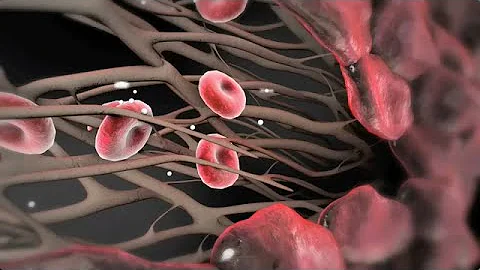blood lipids are an important cause of atherosclerosis, and atherosclerosis can cause cerebral infarction and myocardial infarction. Therefore, the control of blood lipids is extremely important. Currently, the drugs for lowering blood lipids on the market mainly use statins and . However, statins need to be taken every day, and sometimes they are forgotten to take the medicine, which is detrimental to the stability of blood lipids. So, is there any medicine that can control blood lipids for a long time without taking medicine every day? The answer is: yes. That is the lipid-lowering vaccine. In this article, we will discuss vaccines that can lower blood lipids.
This article will cover the following 4 aspects:
l The related mechanism of liver regulation of low-density lipoprotein cholesterol
l What is a lipid-lowering vaccine
l Who is suitable for a lipid-lowering vaccine
l What are the advantages and disadvantages of a lipid-lowering vaccine

1. Liver regulation The related mechanism of low-density lipoprotein cholesterol
The main unfavorable factor of elevated blood lipids is the increase of low-density lipoprotein cholesterol . Elevated low-density lipoprotein cholesterol can be deposited under the intima of blood vessels to form atherosclerotic plaques. Causes atherosclerosis. When it occurs in the cerebral blood vessels, it can cause cerebral infarction ; when it occurs in the heart's coronary artery , it can cause myocardial infarction.
The liver can produce a protein called low-density lipoprotein receptor . This receptor can bind to low-density lipoprotein cholesterol and transport low-density lipoprotein cholesterol into liver cells through the lysosome degrades low-density lipoprotein cholesterol into , thereby reducing low-density lipoprotein cholesterol.
The liver can also secrete a protein called subtilisin converting enzyme 9 (PCSK9) . This protein is the nemesis of the low-density lipoprotein cholesterol receptor. It can bind to the low-density lipoprotein receptor and convert low-density lipoprotein. The protein receptor is transported to the lysosome, the destruction factory within the cell, where causes the low-density lipoprotein receptor to be degraded.
Therefore, an increase in PCSK9 can lead to a decrease in LDL receptors, which in turn leads to an increase in LDL cholesterol.
Research has found that every 100 ng/ml increase in PCSK9 concentration in the blood will increase the low-density lipoprotein cholesterol concentration by 0.20-0.25 mmol/l.
Therefore, can increase the content of low-density lipoprotein cholesterol receptors by inhibiting PCSK9, thereby reducing the concentration of low-density lipoprotein cholesterol in the blood. Is there such a drug for ? Yes, it is a lipid-lowering vaccine.

2. What is a lipid-lowering vaccine?
Lipid-lowering vaccine is a therapeutic vaccine. It is mainly used for patients who have developed hyperlipidemia and is not suitable for normal people. The mechanism of action of the
lipid-lowering vaccine is: when the vaccine is injected into the body, it can bind to PCSK9 and inhibit the binding of PCSK9 in the circulating blood to the low-density lipoprotein receptor, thereby preventing PCSK9-induced degradation of the low-density lipoprotein receptor and significantly reducing density lipoprotein. Protein cholesterol, thereby preventing the occurrence of atherosclerosis.
According to the results of a cardiovascular study involving 27,000 patients, the lipid-lowering vaccine can reduce the level of low-density lipoprotein cholesterol by 59%, reducing the risk of cardiovascular disease by 15%, and reducing the risk of stroke by 21%. , the chance of myocardial infarction is reduced by 27%.

3. Which groups are suitable for the use of lipid-lowering vaccines
1. Patients with hereditary hypercholesterolemia: These patients will develop atherosclerosis at a very young age.
2. Suffering from atherosclerotic cardiovascular disease, there is no significant improvement after taking statin drugs.
3. Patients who are intolerant to statins.
3. Advantages and disadvantages of lipid-lowering vaccines compared with traditional lipid-lowering drugs
There are currently two lipid-lowering vaccines on the market in the world, namely ivolumab and alizumab . Both drugs have been sold in my country Listed.
1, ivolumab: It is the world's first lipid-lowering drug , which can be administered by subcutaneous injection 1-2 times a month. Clinical results show that it has significant effects on hypercholesterolemia and atherosclerotic cardiovascular disease, and no obvious adverse events have been reported so far.
2, alizumab: launched two years later than the first lipid-lowering drug.
Compared with traditional lipid-lowering drugs, these two lipid-lowering vaccines are more effective and have a longer acting time, but their significant disadvantage is that they are expensive.
Taking the domestic market as an example, the current annual cost of lipid-lowering vaccines is about 30,000 to 40,000 yuan, while the annual cost of statin lipid-lowering drugs is only about 2,000 yuan.
Summary of this article: The lipid-lowering vaccine has a long action time and good efficacy, but it is expensive.





















![Unbelievable Cosmic Phenomena Beyond Our Galaxy | Secrets Of The Universe [All Episodes] | Spark - DayDayNews](https://i.ytimg.com/vi/sHEwTKEDVM0/hq720.jpg?sqp=-oaymwEcCNAFEJQDSFXyq4qpAw4IARUAAIhCGAFwAcABBg==&rs=AOn4CLAOHCCVwEK0S3PEAiMgW9rL4mC6YQ)